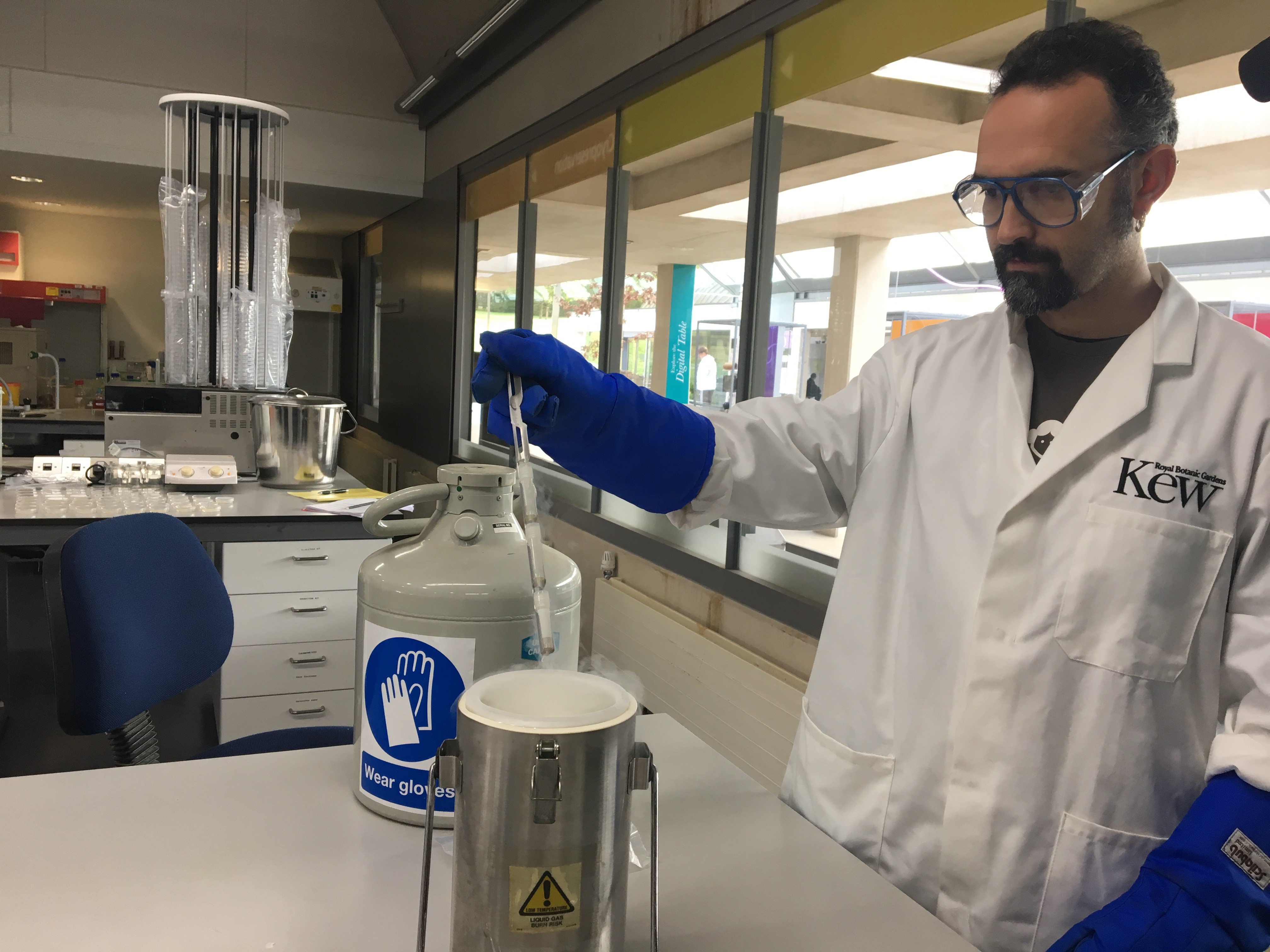Kew scientist Dr John Dickie, former Kew scientist Dr Sarah Wyse, and former Director of Science at Kew Prof. Kathy Willis argue that alternative techniques are needed to meet the Global Strategy for Plant Conservation target of conserving 75% of the world’s threatened plant species. Cryopreservation is one such technique that uses liquid nitrogen to provide a potential long-term storage solution for recalcitrant seeds.
The current process of seed banking requires seeds to be dried before they are frozen at -20°C, whereas cryopreservation involves removing the embryo from the seed and using liquid nitrogen to freeze it at -196°C. Not only does it allow unbankable seeds to be stored but could also extend lifespans of other seeds.
Seed banking works as an ‘insurance policy’ against the extinction of plants in the world by conserving plants outside of their natural habitats.
Dr John Dickie, Head of Seed & Lab-based Collections at Kew’s Millennium Seed Bank and one of the authors of the paper, says that “Ex-situ conservation of plants is more critical than ever, with many threats to plant populations including climate change, habitat conversion and plant pathogens. This paper shows that we need greater international effort to understand and apply alternative techniques like cryopreservation which have the potential to conserve many more species from extinction.”
Kew scientist Dani Ballesteros preserving species by cryopreservation.
Kew has been championing the use of cryopreservation at the Millennium Seed Bank and has outlined the method as a key priority for conserving the world’s seeds in its Collections Strategy.
The paper, published Friday 2 November in Nature Plants, is titled ‘Seed banking not an option for many threatened plants’
Sources:
- Wyse, S.V., Dickie, J.B. & Willis, K.J. (2018). Seed banking not an option for many threatened plants. Nature Plants, 4: 848–850
- Looking at the likely ‘bankable’ proportion of species on the International Union for Conservation of Nature Red List of Threatened Species [IUCN Red List]
